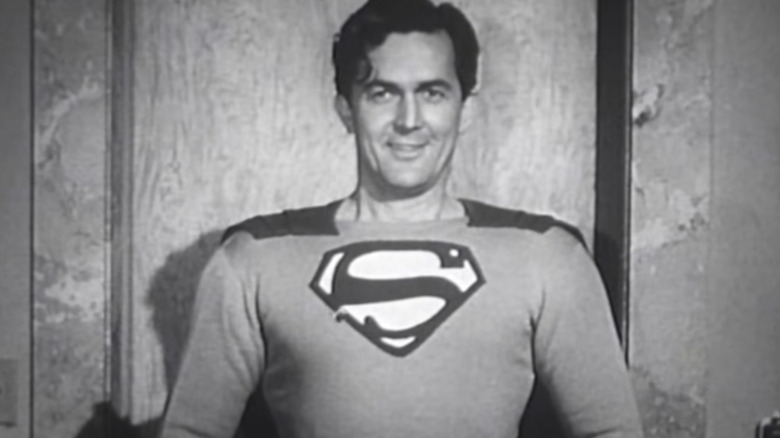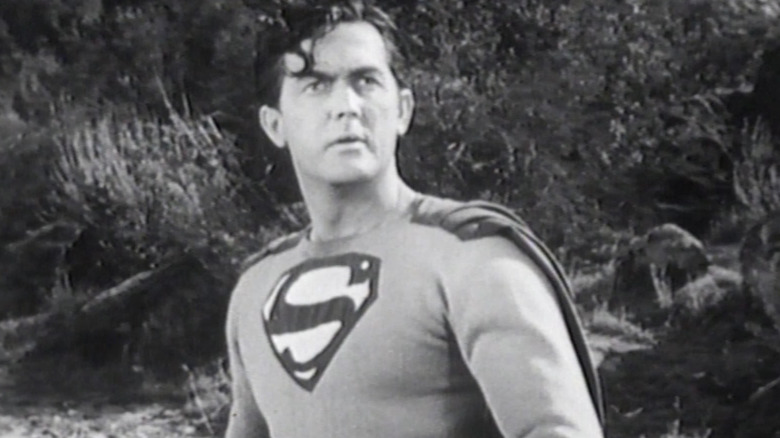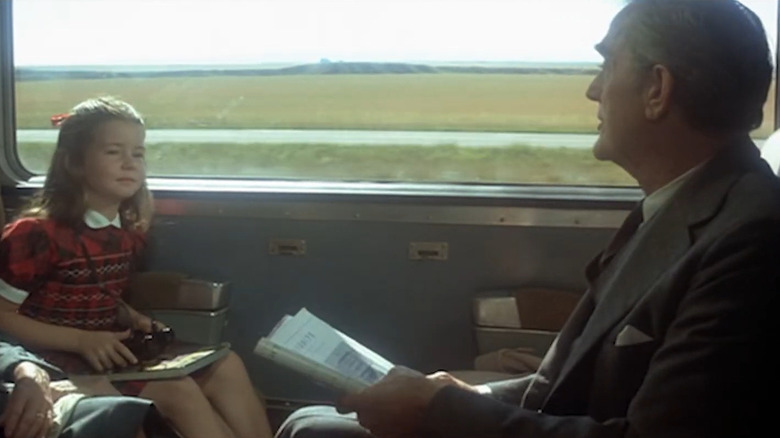As James Gunn’s highly anticipated reimagining of “Superman” soon approaches, it’s imperative to pay tribute to the many big screen incarnations of the DC superhero that paved the way for David Corenswet’s arrival. We wouldn’t be at this exciting new stage for the Man of Steel without George Reeves, Christopher Reeve, Brandon Routh, and Henry Cavill. While it would be easy to regale you with stories from their respective tenures, there’s another actor absent from this incredible bunch that never quite got the flowers he deserved.
Advertisement
Theatergoers of the early ’40s already had a taste of “Superman” with the stunning Fleischer cartoons, but in 1948, they received their first live-action glimpse of Jerry Siegel and Joe Shuster’s creation in the form of the vaudevillian-trained Kirk Alyn.
The 15-part serial from Columbia Pictures and its 1950 follow-up “Atom Man Vs. Superman” saw Alyn play the Clark Kent/Superman dynamic in a manner that served as a blueprint of sorts for his successors. There’s such a boyish charm to his performance that suits the virtuous spirit of the character well, even though it often caused Kal-El’s two personas to collapse into one another.
In spite of its low-budgeted aesthetic, the “Superman” serials found some ingenious workarounds. Any attempts at wire work failed miserably, so when it came time for Alyn to take flight, the actor would leap and then suddenly transform into an animated figure. In that case, Alyn is also the first actor to simultaneously represent the Man of Steel in his live-action and animated forms. So why wasn’t he properly credited for his contribution to DC history? The answer came down to immersion.
Advertisement
Kirk Alyn’s portrayal was showcased as being the actual Superman
In an effort to make younger audiences believe they were actually watching Superman swoop in to save the day, the serials took the liberty of omitting Alyn’s screen credit. If you look at the posters for both “Superman” and “Atom Man Vs. Superman,” his name is technically present. The titular super, however, receives top billing in the form of a “with Superman” credit, insinuating that the son of Krypton himself stopped by to film his scenes.
Advertisement
At least those posters gave Alyn some kind of recognition for being part of the projects. In the opening intros for each chapter of both serials, Superman is once again credited above the entire cast, but Alyn’s name is nowhere to be seen — not even as Clark Kent. It’s especially disheartening considering prior to this, Lewis Wilson was credited as “Batman” in his serial, as was Dick Purcell as “Captain America” in his.
Unfortunately, this was the first of many occurrences where an actor playing Superman would only be viewed through the eyes of the general public as such. Being Superman all the time isn’t as cracked up as it ought to be.
Kirk Alyn went uncredited again for his cameo in Superman: The Movie
It’s not at all uncommon for Superman alumni to make guest appearances in other adaptations as different characters. Christopher Reeve had a small role in “Smallville,” Jack Larson had a brief cameo in “Superman Returns,” and Phyllis Coates performed a guest spot in an episode of “Lois and Clark.” One of the first notable nods to DC past came about in “Superman: The Movie.”
Advertisement
In one early scene, a teenage Clark Kent (Jeff East) races a train passing through Smallville. Aboard the train is a young Lois Lane (Cathy Marcotte) traveling with her parents. The parents are played by none other than Kirk Alyn and Noel Neill, which is notable for two reasons. Not only was this the first of many cameos Neill would make across various DC projects, but it was a reunion. She was the first live-action actor to play Lois in the “Superman” serials with Alyn prior to taking on the coveted role from season 2 onwards of the “Adventures of Superman” television series.
If you watch the version of “Superman: The Movie” that’s been made widely available on Max, Alyn’s General Sam Lane is barely seen and not heard. It’s only in the extended television version where he actually gets a line, telling young Lois to read her book. His uncredited appearance is not nearly as egregious as his omission from the serials, yet it’s still a real shame that Alyn never got the credit he deserved.
Advertisement










